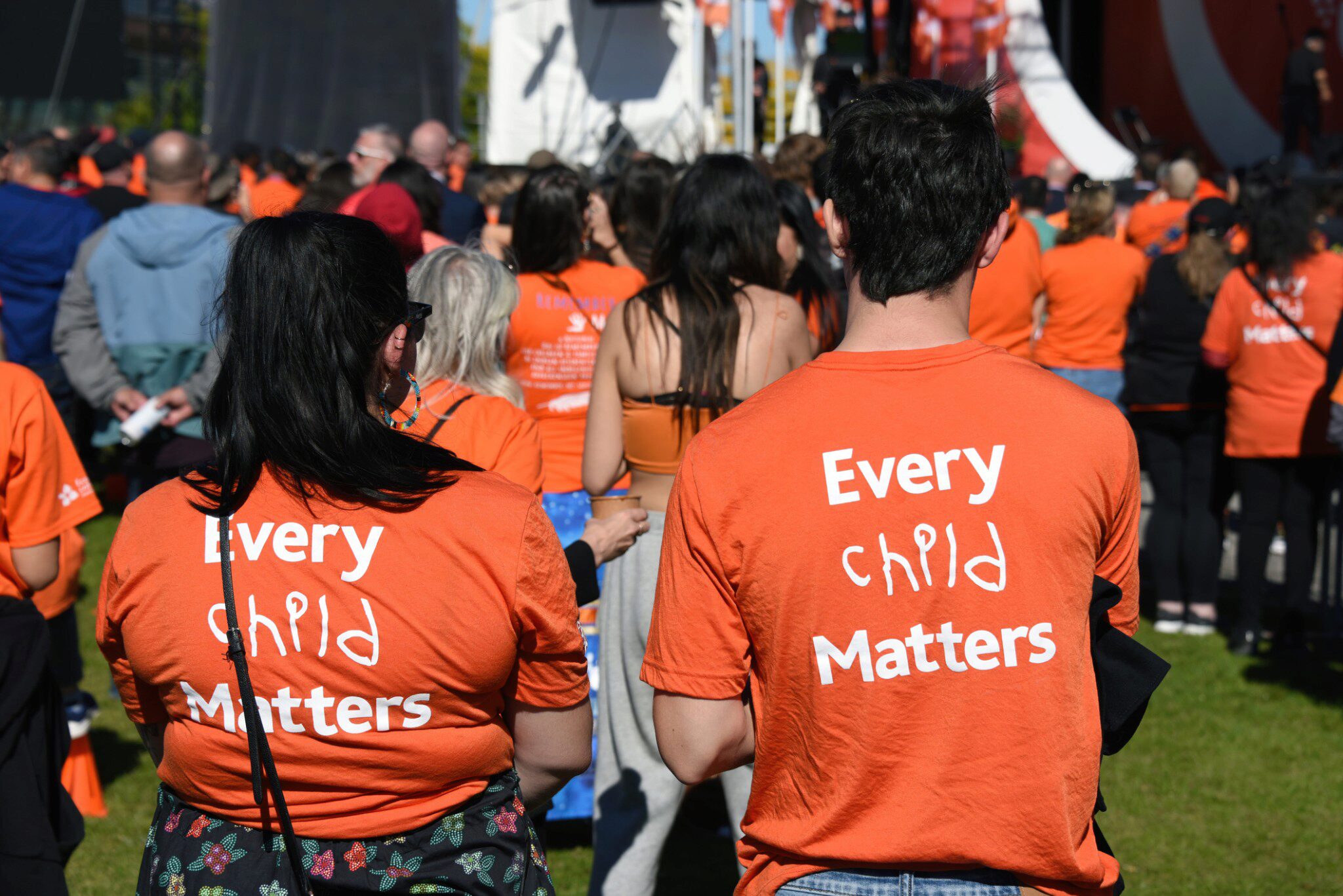
-
Sep30Tue
My Ponderings and Reflections of Truth and Reconciliation on Tuesday, September 30, 2025
September 30, 2025
Today, we remember and honour those who were also uprooted from their homes as young children and placed in residential schools across our nation on the National Day for Truth and Reconciliation. These children, some as young as six, were torn from their parents, placed in residential schools, and told they could not speak in their own language. They were given new beds, forced into a new way of life—taught a different language, culture, and faith.
I don’t want this day to pass by without meditating on its importance.
History continues to repeat itself. Ecclesiastes declares there is nothing new under the sun. Throughout history, people have been uprooted from their homes and forced into exile or displacement. These involuntary movements, often driven by war, persecution, political upheaval, or ethnic cleansing, represent a profound loss of home, culture, and community.
As a child in Sunday School, I heard stories of Daniel and his friends who were taken into exile by King Nebuchadnezzar. They were uprooted from Jerusalem to Babylon—torn away from their homes, families, friends, work, and culture. They were held in exile, taught a new language, given new foods, and even new names. Their very identities were challenged.
Unlike Daniel, who lived in the palace of the king and was treated with a measure of privilege, many children in residential schools were abused, defiled, and mistreated. From Daniel chapter 1, it appears Daniel and his friends were given food from the king, but they refused it and stayed with what they considered clean. We know from later chapters in Daniel that he and his friends faced the fiery furnace and Daniel was forced into the lions’ den. Daniel and his friends consistently faced persecution as exiles and for practicing their faith.
History lessons of forced displacement in modern history is not foreign to us including,
- Greek-Turkish Population Exchange (1923): The Lausanne Convention mandated the transfer of populations by religion. About 1.3 million Greeks were expelled from Turkey, while roughly 400,000 Turks were sent from Greece to Turkey1.
- The Holocaust (1940s): The Nazis systematically murdered about 6 million Jews, following forced removal into ghettos, concentration camps, and extermination camps2.
- Partition of India (1947–48): The division of British India into India and Pakistan displaced 14–16 million people (Hindus, Muslims, Sikhs), making it the largest mass migration in modern history. Up to 2 million were killed in the violence that followed3.
- Palestinian Refugees (1948): During the Arab–Israeli War, about 750,000 Palestinian Arabs fled or were expelled, becoming refugees in neighbouring countries or in what became the Gaza Strip and West Bank4.
- Vietnamese Boat People (1975–1995): After the Vietnam War, nearly 800,000 refugees fled Vietnam by sea. Many perished at sea due to storms, overcrowding, or piracy5.
- Sudan (2003–present): The Darfur conflict (2003–2008) killed an estimated 200,000–400,000 and displaced 2.7 million internally6. Renewed conflict in 2023 has created the world’s largest displacement crisis today: as of mid-2024, over 12.8 million people had been forcibly displaced (8.1 million internally; 4.7 million across borders)7.
- Syrian Civil War (2011–present): By the end of 2024, more than 14 million Syrians had been displaced, including 6.1 million refugees abroad and 7.4 million internally displaced8.
- Ukraine (2022–present): Russia’s full-scale invasion has displaced about 6.3 million refugees abroad and 3.7 million internally displaced within Ukraine9.
History continues to repeat itself. We cannot stay silent! We must seek after truth, repentance, and reconciliation. Reconciliation will not be realized without truth-telling and repentance.
But today our minds reflect on the experience of First Nations children in Canadian residential schools—this is part of our own history, and is a stark example of forced displacement aimed at cultural annihilation, where children were forcibly removed from their homes and families to institutions far away. Similar actions were implemented in the United States through the Indian boarding school system.
Will you join me today in reflecting on these questions?
- Where have I been party to silencing victims?
- Who do I discriminate against or show bias toward?
- Who have I harmed or persecuted?
- Where have I justified my actions which harmed others?
- Where have I chosen silence and turned away from injustice?
- Do I support or condone behaviour that places people in harm’s way?
My Faith Perspective
Daniel and his friends were told to speak a different language, eat different food, and dress differently. Residential school children were robbed of the opportunity to practice their beliefs and spirituality. Priests, nuns, and ministers tried to force Christianity upon them.
There are striking similarities across these stories of displacement: people stripped of their home, culture, identity, and dignity. But forcing faith, beliefs, or lifestyle is not God’s way. The Bible makes it clear that faith is a personal decision, and God grants free will to believe.
I take great comfort in how Daniel’s story ends. Through the prophet Ezekiel (chapter 36), God promised the exiled Jewish people that they would be restored and regenerated.
History repeats itself, but thankfully, the story has not yet ended, and God’s promises are fulfilled.
King David once prayed: “Lift up the light of your face upon us, O Lord! You have put more joy in my heart than they have when their grain and wine abound. In peace I will both lie down and sleep; for you alone, O Lord, make me dwell in safety.” (Psalm 4:6–8)
Today, I pray for all who live in captivity—whether held by oppressors today or by painful memories of residential schools, prisons, or war. May they know the source of joy. May they rest in peace, trusting that the Lord will one day restore, regenerate, and bring them to dwell in safety.
Let’s shift the future for the next generation. Reconciliation begins with truth telling and repentance—for our actions, and for the actions of those that went before us.
Footnotes
- Turkey: History – Encyclopedia Britannica. Link
- United States Holocaust Memorial Museum – Documenting Numbers of Victims. Link
- Partition of India – National Institutes of Health / PMC (2024). Link
- Palestinian Refugees – UNRWA, Palestine Refugees. Link
- UNHCR – The Vietnamese Boat People Crisis. Link
- Human Rights Watch – Darfur 2003–2008. Link
- UNHCR – Mid-Year Trends Report 2024. Link
- UNHCR – Syria Emergency. Link
- UNHCR – Ukraine Emergency. Link



Leave a Comment